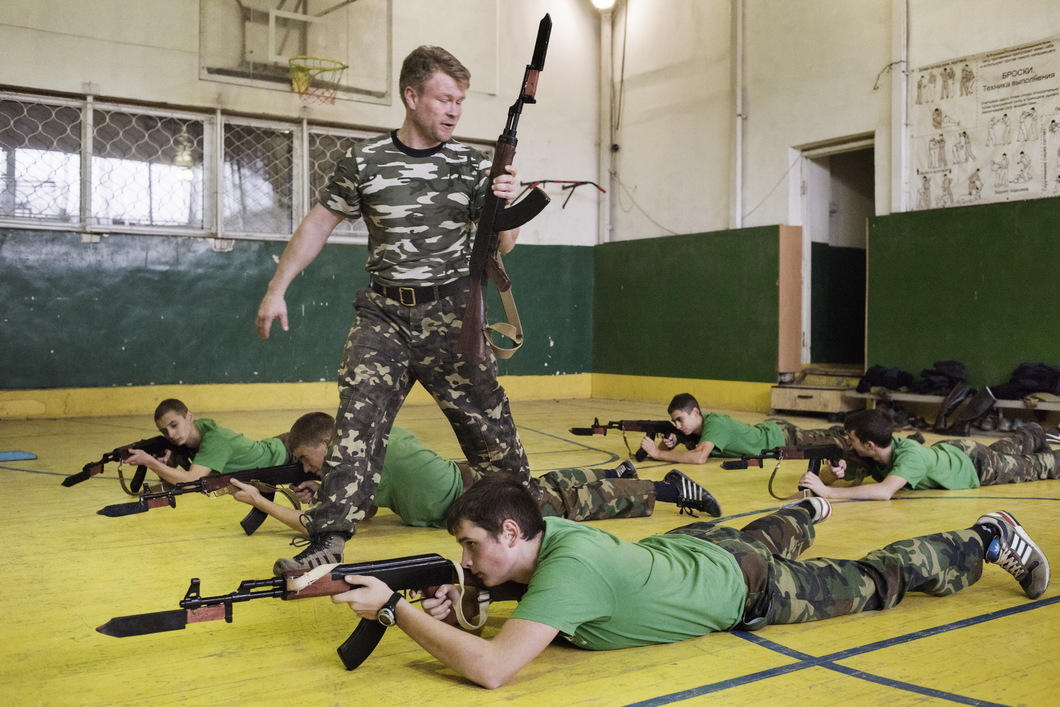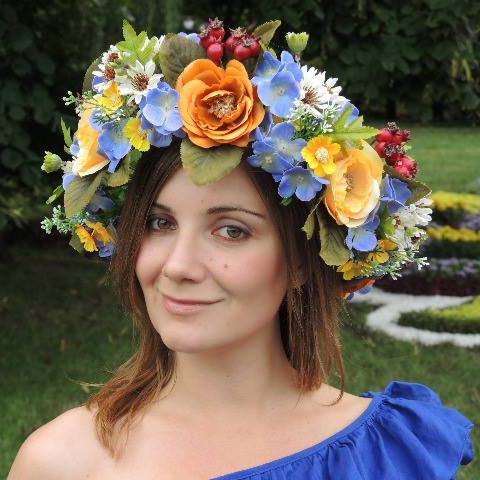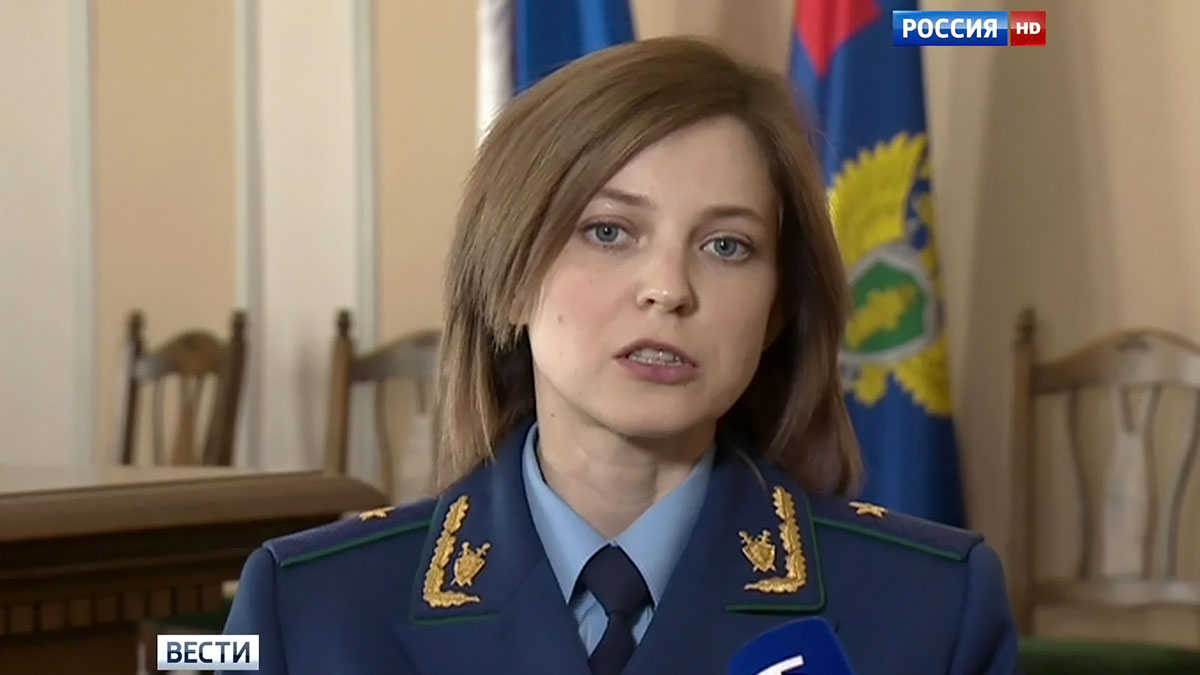Avraam Shmulyevich says that Moscow is forming Latin American-style “death squads” in occupied Crimea, the Russian Federation and even in some Western countries and that the Kremlin plans to use them to promote the militarization of society, the suppression of dissent, and the defeat of its enemies in the event of a real war.
In an interview with Kseniya Kirillova for Radio Liberty, the Israeli expert says
The two post-Soviet Chechen wars showed the Kremlin that “the post-Soviet people does not want to die,” Shmulyevich continues. Indeed, that attitude, many analysts say, is a major reason that has prevented Putin up to now from engaging in even broader forms of aggression abroad at least for the present.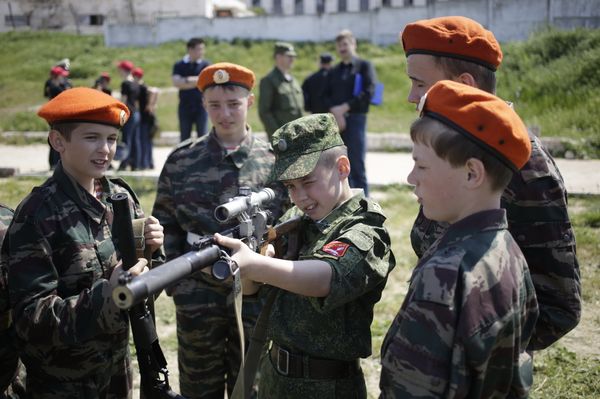
But the Kremlin leader has not given up: his regime has come up with the idea to accustom the population to the idea about “the need to fight and die as a chief goal of life” and to begin to inculcate that notion among children.
As developments in occupied Crimea show, Shmulyevich continues, “this work has begun with children. Those youths who today are marching” with unloaded guns “will be going into the army in five to eight years.” And the Kremlin hopes that as a result of their experiences, they will want to fight more than the current younger generation.
One reason these militarized activities have been as successful as they have, the Israeli analyst says, is that “all other independent youth subcultures and groups have been chipped away at, discredited and set to fight one another. Only militarized structures remain” which can “attract children with interesting activities, nice uniforms and good organization.”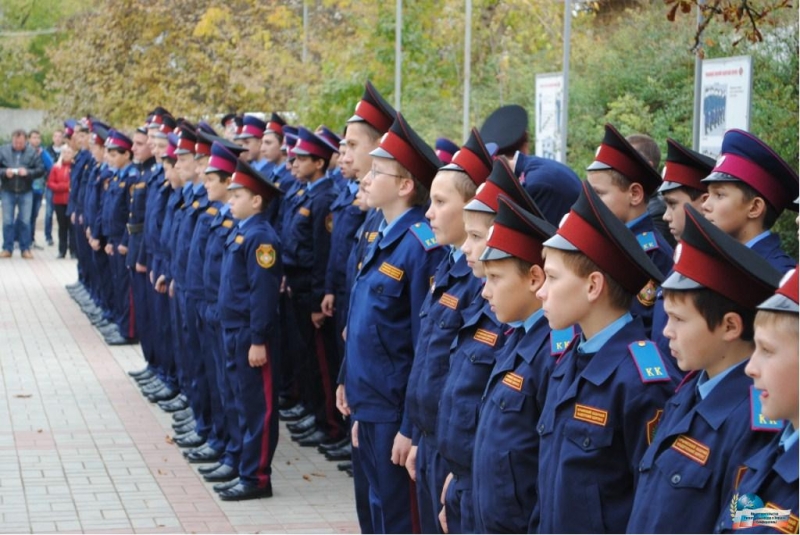
In brief, the analyst argues,
According to Shmulyevich, Kirillova writes, young people are being transformed into “‘chained dogs of the regime’ in various spheres and this process is especially well advanced and worrisome in Russian-occupied Crimea.
Shmulyevich says that “the Russian authorities have clearly declared that for them Crimea is ‘an advanced detachment and the border of our motherland.’ The peninsula is strategically close to the Mediterranean basin and the main communication lines of the West,” especially important if there is a war.
Moreover, he continues, “Russian elites have gotten used to the thought that there is nothing terrible in nuclear war and that it is completely possible to make use of tactical nuclear weapons. In a word, they are being prepared for a lengthy war.”
The last feature is especially important for Moscow, he suggests, because in the event of a nuclear response against such forces in Crimea, “the radioactive cloud would not go toward Russia but toward [the rest of] Ukraine.”
What is also particularly worrisome, Shmulyevich says, is that “the Kremlin is actively organizing militarized ‘Cossack’ detachments in other countries including Belarus, Serbia and even the United States.”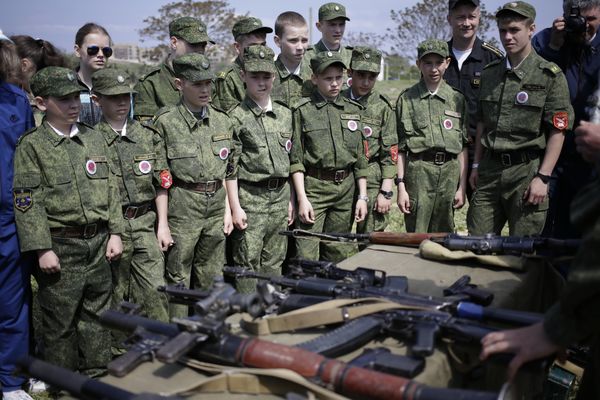
This process involved “the ideological processing of people and the creation out of them of a certain ‘fifth column,’” Shmulyevich says.
And “if a serious war should begin, it is not excluded that part of these people will be used for diversionary actions,” Shmulyevich says.
The phenomenon Shmulyevich points to is disturbing; and even though most of those swept up in Putin’s militarization program won’t end up in the kind of “death squads” the Israeli analyst suggests, some of them likely have and more may in the future, a dangerous trend that bears the closest possible monitoring.
Read More:
- Putin’s ‘secret weapon’ against the West – massive illegal cash hordes in foreign countries
- Moscow diplomats said behind formation of militarized Russian and Cossack groups in US
- Kremlin said organizing secret military units in Germany, other Western countries
- How the Kremlin influences the West using Russian criminal groups in Europe
- How Russia recruits Serbian mercenaries into the ranks of its fighters in Donbas
- Plans for a “Great Serbia” and the Kremlin’s hybrid war in the Balkans
- Russia’s “ghost” armies and the “heroes of the Russian spring” in Ukraine

